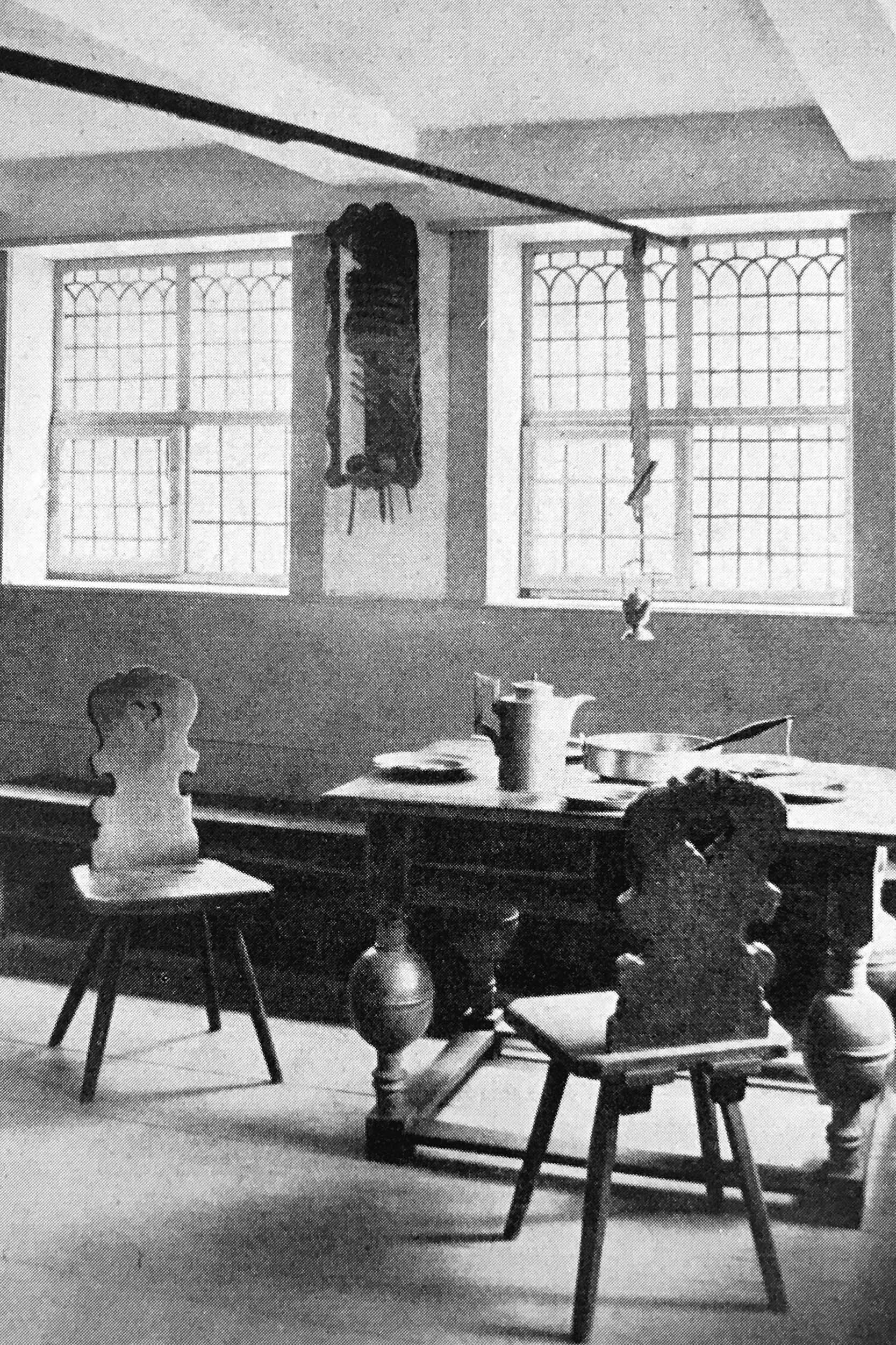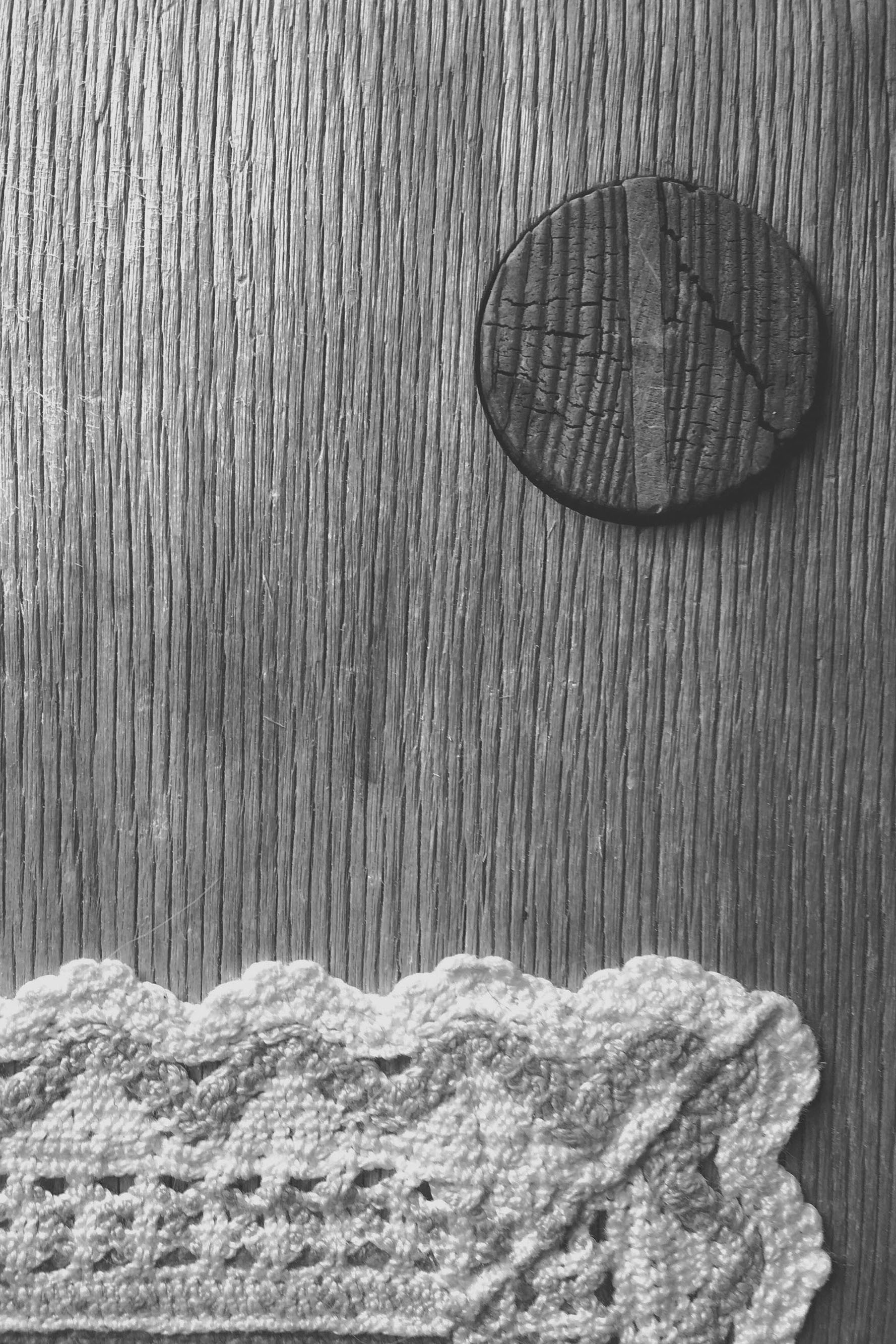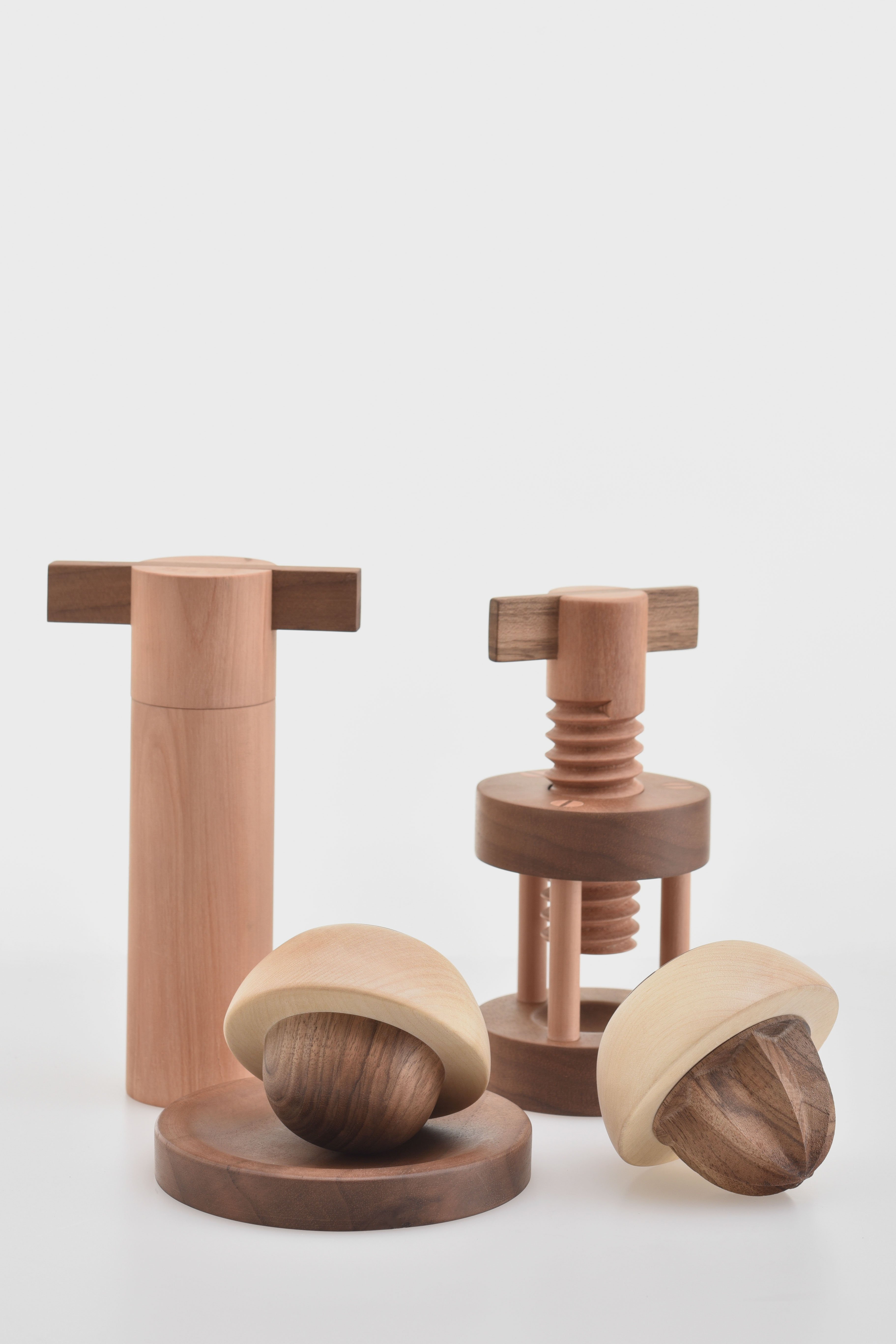Heimat-Verbunden
The detail of the wood joint can be found in the majority of traditional furniture. All the good aspects of traditional handcraft combine in the detail of the wood joint: environmentally friendly, use of local wood, reduction of materials and, most importantly, no need for screws or nails. By holding a discourse on the material wood and the detail of the wood joint, this project draws attention to the almost forgotten handcraft and tradition of South Tyrol.
![]()
![]()
The result is a family of four objects: a nutcracker, a pepper mill, a mortar and a lemon squeezer. Each one of them is focused on the detail of the wood joint by serving, both as a useful construction element and an aesthetic detail. Changing the typology from heavy furniture to small in-between objects highlights the wood joint and the discourse with the material.
![]()
![]()
![]()
![]()
![]()
![]()
Contributors:
WOODWORK SUPPORT Valentin Riegler
SUPERVISION Nitzan Cohen↗
Context
Project developed at unibz↗
The detail of the wood joint can be found in the majority of traditional furniture. All the good aspects of traditional handcraft combine in the detail of the wood joint: environmentally friendly, use of local wood, reduction of materials and, most importantly, no need for screws or nails. By holding a discourse on the material wood and the detail of the wood joint, this project draws attention to the almost forgotten handcraft and tradition of South Tyrol.


The result is a family of four objects: a nutcracker, a pepper mill, a mortar and a lemon squeezer. Each one of them is focused on the detail of the wood joint by serving, both as a useful construction element and an aesthetic detail. Changing the typology from heavy furniture to small in-between objects highlights the wood joint and the discourse with the material.






Contributors:
WOODWORK SUPPORT Valentin Riegler
SUPERVISION Nitzan Cohen↗
Context
Project developed at unibz↗